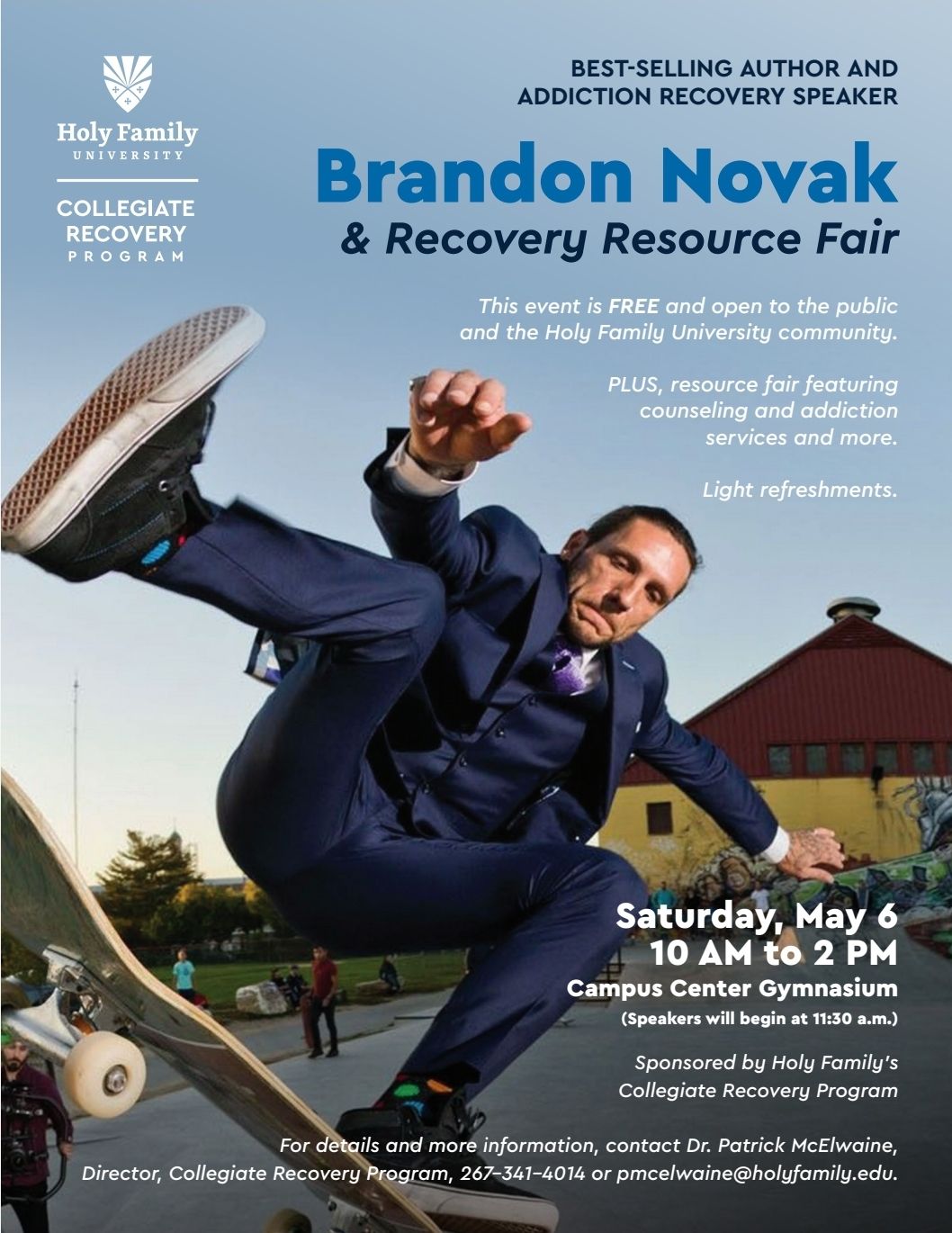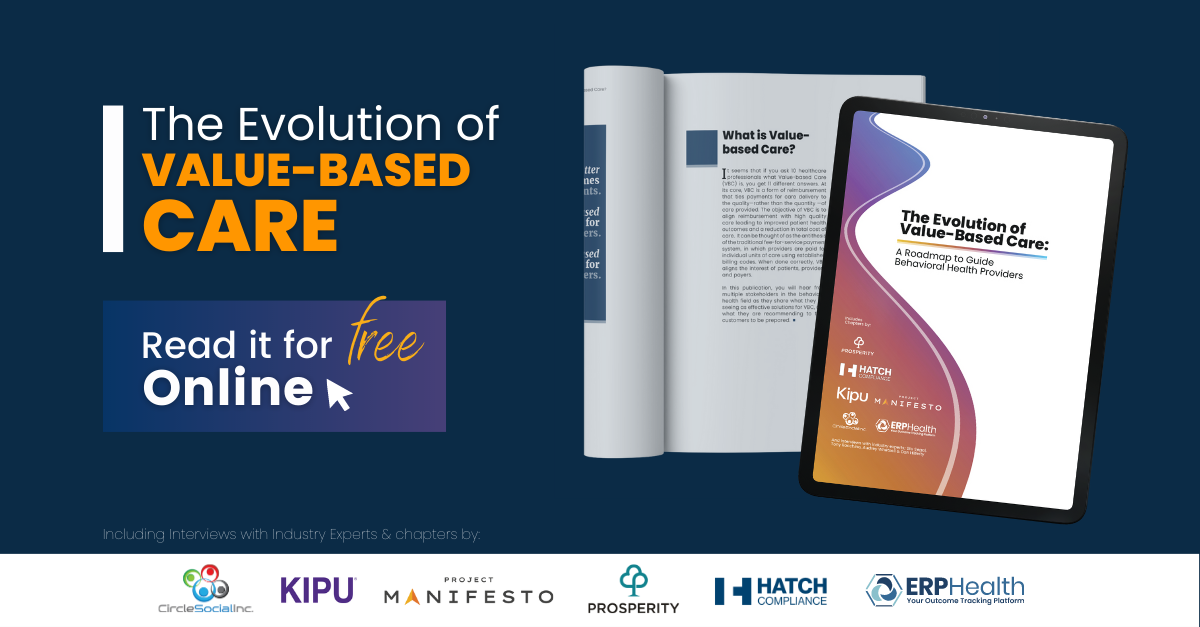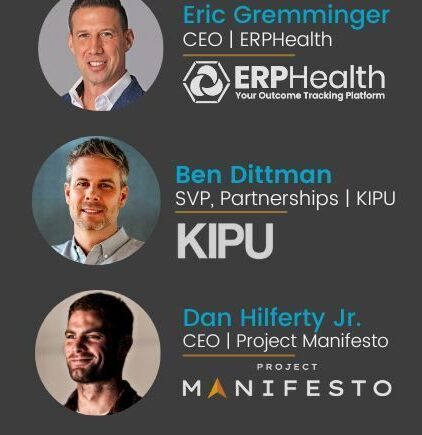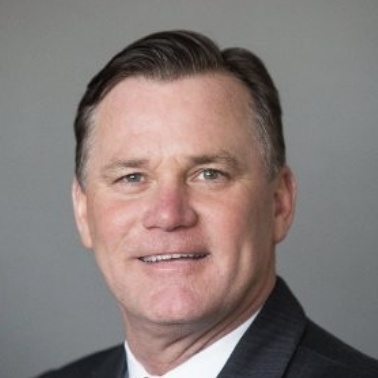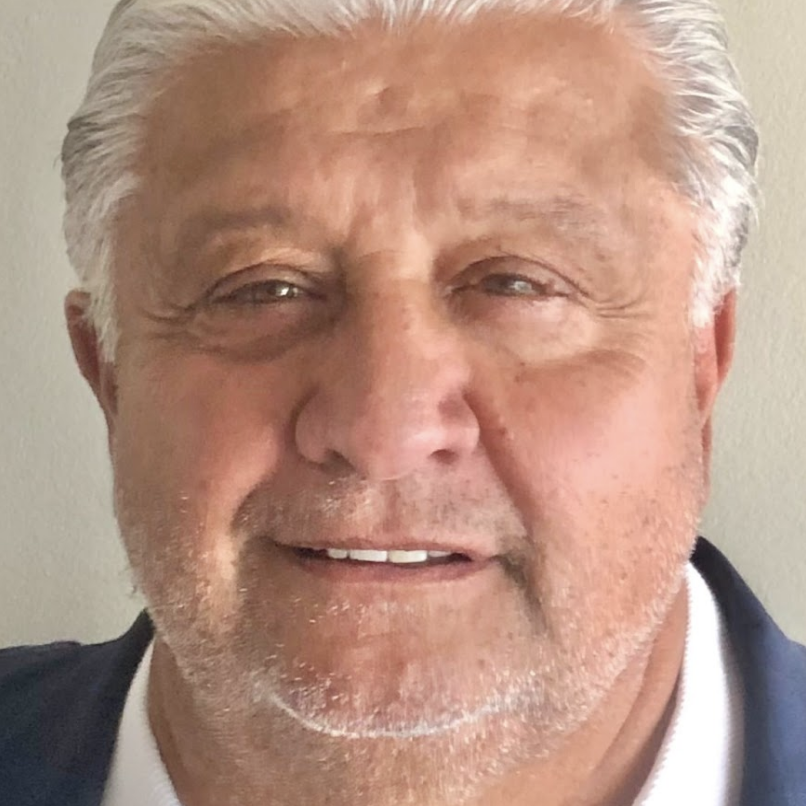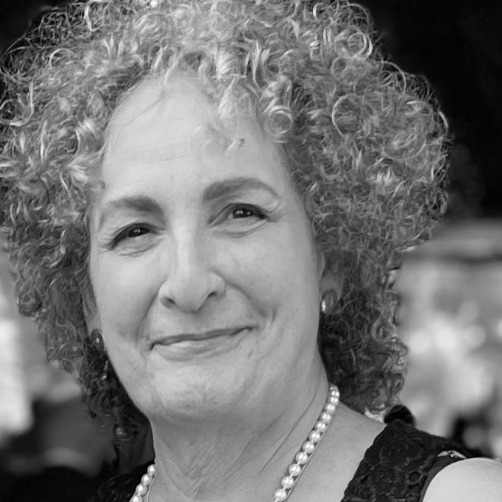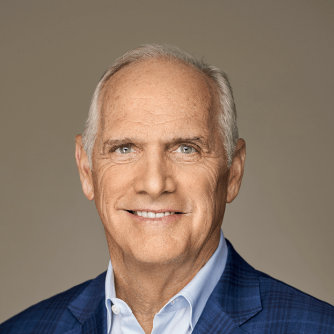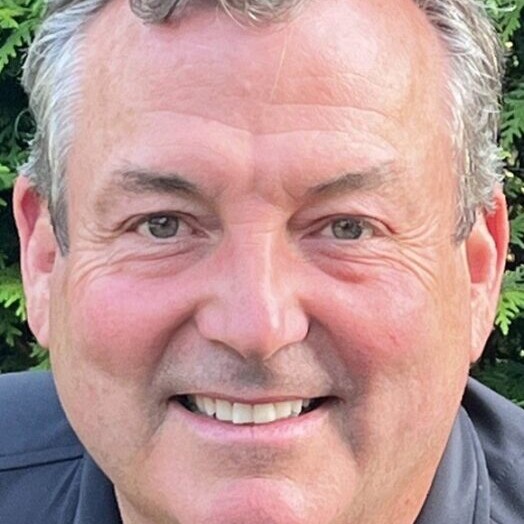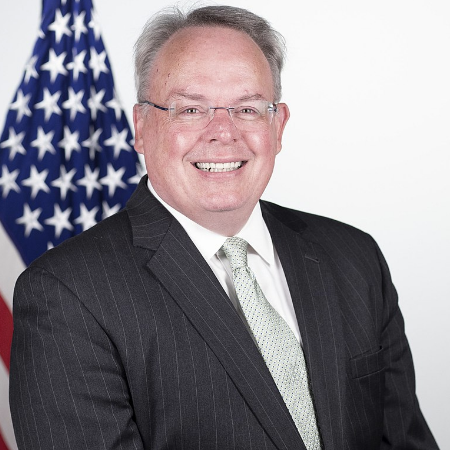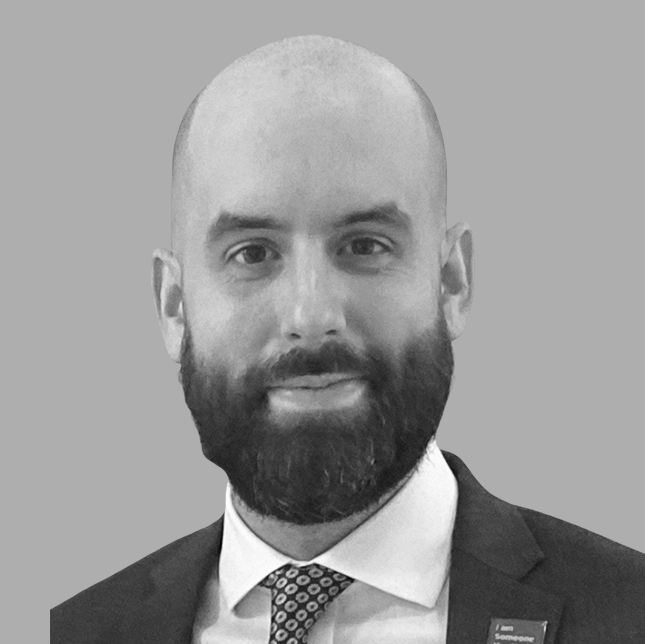Collegiate Recovery Program (CRP) Resource Fair at Holy Family
Can't wait to support the Collegiate Recovery Program at Holy Family University led by our friend and fellow advocate, Dr. Patrick McElwaine!
Join us and many other recovery resources on Saturday, May 6th for this FREE community event that promises to be fun & impactful!
The Evolution of Value-Based Care Publication
We are excited to present the new value-based care provider resource, the Value-Based Care Roadmap. This roadmap is designed to be an industry-leading guide for addiction treatment and mental health providers as the industry shifts from fee-for-service to value-based care.
Access it for free here: The Evolution of Value-Based Care
In this publication, you will find articles and interviews from nearly a dozen leading experts in the behavioral health field. They share best practices and recommendations for how providers can thrive in value-based arrangements.
Tapping into decades of experience and perspectives from multiple stakeholders, the Value-Based Care Roadmap offers a comprehensive understanding of value-based care and is a resource that providers will be able to visit again and again to navigate the rapidly changing reimbursement landscape.
Be sure to check out Chapter 7 titled, “Peer Support Workers in VBC” where our cofounders Pat and Dan delineate the role of peer support as an innovative solution—along the continuum of care—in the transition to VBC arrangements.
A big thanks to our partners at ERPHealth for masterfully producing this roadmap.
Peer Support Workers are an Underutilized Solution the Behavioral Health Industry Needs
The research is clear—peer support works. If you’re looking to check out the robust empirical support for the effectiveness of peer coaching, check out our prior blog post: The Impact of Peer Recovery Coaching.
At Manifesto Health, our peer recovery coaches extend care into real-world scenarios where it’s needed most—such as returning home after treatment, going back to work, and reaching the crucial one-year mark in recovery.
Our peer support workers use their lived experience of recovery, combined with our extensive and continuous training/supervision, to assist people in initiating and maintaining recovery. Through shared understanding and mutual empowerment, peer support workers can fill the gaps in support that clinical care cannot reach.
We want to be deliberately clear here: our peer-led support is not a replacement for clinical services such as psychotherapy and medications—but it can enhance and reinforce them. Moreover, individuals in different stages of their recovery may not elect to use clinical services (or may not have access to them), but could benefit from accessible and affordable peer support.
There’s an estimate of over 20 million individuals in recovery living in the US. While not everyone in recovery will choose to be a peer support worker, even a small portion of the recovery population that elect to become peer support workers can fill the problematic shortages of behavioral health professionals.
Currently, the shortage of behavioral health providers is posing a major barrier to effective care—and people in need are paying the price. Furthermore, if the client is willing to tolerate the long wait-lists and limited access, outpatient psychotherapy is expensive and many behavioral health providers do not take insurance because of poor reimbursement rates by insurers.
Peer support services create much greater access to care-delivery by providing localized, affordable, and effective services that keep people connected to care for longer durations. While peer support services are not a replacement for clinical care, they are an underutilized resource that should be implemented in more outpatient settings along the continuum of care.
In Pennsylvania, approximately 55% of SUD treatment centers offer peer services of some kind. However, most of these services are limited to a few peer staff that support inpatient clients. Employing peer support workers in greater numbers in outpatient settings is the key to facilitating long-term engagement and connection to the continuum of care. A commitment to long-term recovery is no easy feat—and should come with a longer-term support plan than clinical treatment typically offers.
Simply put, addiction is a behavioral condition that requires long-term engagement for the best likelihood of sustained behavior change. At Manifesto Health, our peer recovery coaches offer accessible and affordable support with understanding and empathy that only a peer can offer.
Behavioral Health Business VALUE Conference
Behavioral Health Business presents VALUE, a conference for industry executives focused on the future of value-based care in behavioral health.
C-suite executives and thought-leaders look to define the conversation around this and future payment models in behavioral health care.
Who You Can Expect to Meet at VALUE:
- Behavioral health owners and operators
- Payers, insurers and health systems
- Investors and capital providers
- Technology providers
How can peer support workers help to accelerate value-based care arrangements?
We will be answering that question and more alongside industry leaders in Outcome Tracking (ERPHealth) and EMR (Kipu Health) at next week's VALUE conference!
What is the Cost of SUDs for Employers, Employees, and their Health Insurance Payers?
A recently-published JAMA study titled, Medical Costs of Substance Use Disorders in the US Employer-Sponsored Insurance Population, examined the research question: What is the medical cost of substance use disorders (SUDs) for US employers, employees, and their health insurance payers?
The answer: of the 162 million non–Medicare eligible enrollees with employer-sponsored health insurance (ESI) in 2018, 2.3 million had an SUD diagnosis. The annual attributable medical expenditure was $15,640 per affected enrollee and $35.3 billion in the population.
The authors said it best, so we’ll highlight their words:
- “The cost of strategies to support employees and their health insurance dependents to prevent and treat SUDs can be considered in terms of potentially offsetting the existing high medical cost of SUDs.”
- "Not all people with SUDs have a diagnosis, and costs related to absenteeism, presenteeism, job retention, and mortality are not addressed.”
- “In this study, 1% of the ESI population had an SUD diagnosis compared with 11% of workers who self-report SUD, suggesting the medical cost that employers and their health insurance payers face is likely far higher than reported here. Employers can take action by developing workplace-supported prevention, treatment, and recovery programs.”
Is your workplace Recovery-Ready? Manifesto Health will co-create your workplace-supported recovery program. Let us help you lead the way!
Creating Recovery-Ready Workplaces
In April, the Biden administration released its National Drug Control Strategy as a comprehensive outline to address the current opioid crisis. In response to the harrowing number of overdose deaths in 2021 (≈106,000 lives), the 127-page document prioritizes actions that will save lives and get people the care they need.
The Strategy defines the four major dimensions of recovery as home, health, purpose, and community. Thus, recovery is measured by recovery capital—the resources that individuals develop and rely on to sustain and enhance their lives in recovery. Examples of recovery capital include internal resources such as coping skills, resilience, and perseverance as well as external assets such as family, a supportive community, and employment or meaningful work.
A major focus of the Strategy is creating Recovery-Ready Workplaces, characterized by effective policies and procedures that:
- Expand employment opportunities for people in or seeking recovery
- Encourage and facilitate help-seeking among employees with substance use disorder - Streamline access to essential services including treatment and recovery support - Inform employees in recovery about their rights to reasonable accommodations and other protections to help keep their jobs
Recovery-ready workplaces can be instrumental to employers, employees, and the broader public in reducing turnover, enhancing productivity, reducing health care costs, expanding the workforce, and promoting overall well-being and recovery.
Employers can be at the forefront of combating stigma and misunderstanding by fostering a conscientious and compassionate culture that recognizes SUD as a health condition and welcomes and supports individuals in or seeking recovery.
Is your workplace Recovery-Ready? Lead the way!
The Impact of Peer Recovery Coaching
The long-term management required for chronic conditions such as SUD should mean long-term care. Manifesto Health’s peer recovery coaches extend the level of care into real-world scenarios where it's needed most, such as finding meaningful work and reaching the crucial one-year mark in recovery.
A peer recovery coach brings the lived experience of recovery, combined with training and supervision, to assist others in initiating and maintaining recovery. Through shared understanding and mutual empowerment, peer support workers help people become and stay engaged in the recovery process and reduce the likelihood of relapse.
*Infographic provided by SAMHSA
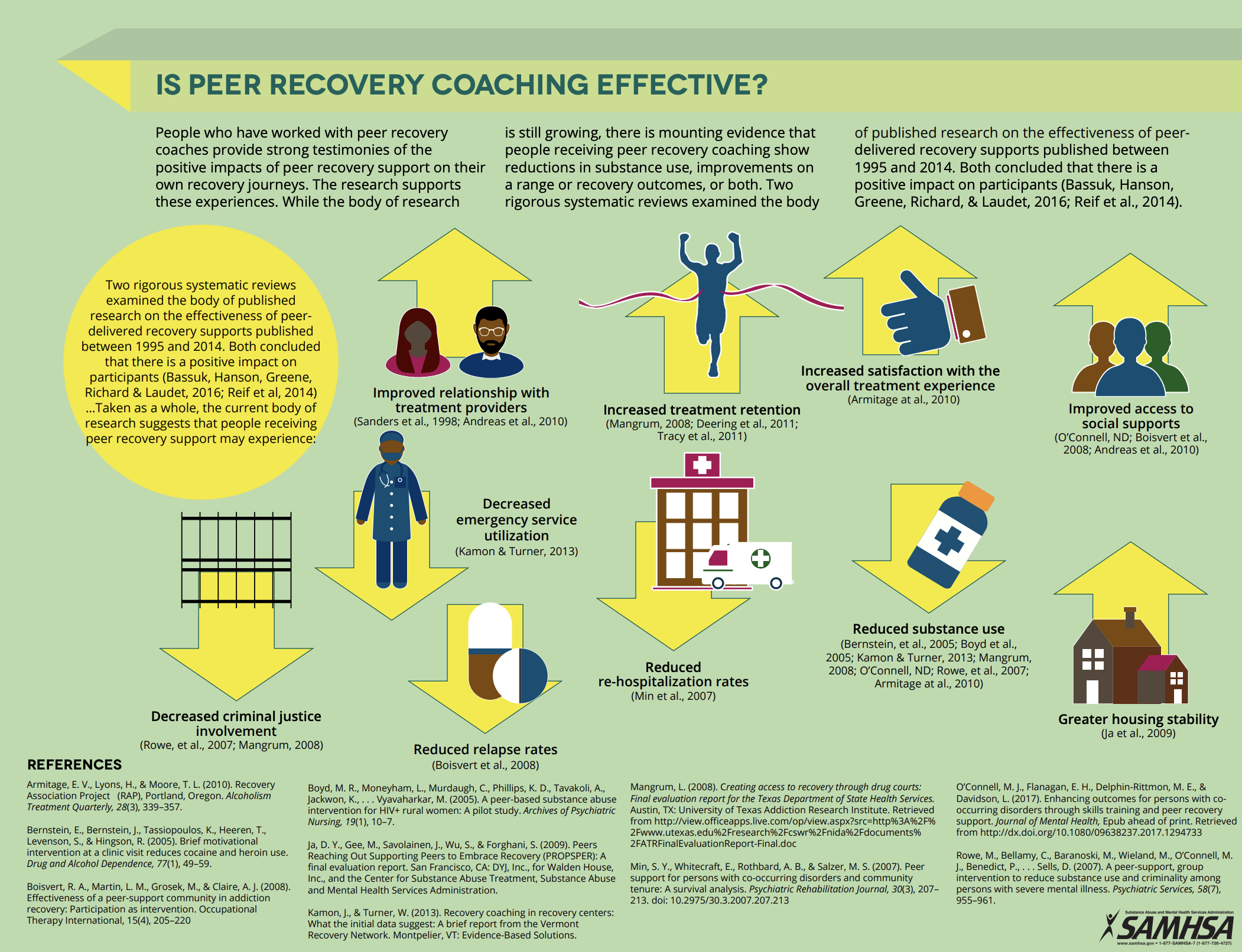
Rehabilitation and Community Providers Association (RCPA) Conference
Yesterday, Manifesto Healths’s Co-Founder and CEO Daniel Hilferty Jr. presented to community providers across the Commonwealth of Pennsylvania at the annual Rehabilitation and Community Providers Association Conference. Dan discussed:
- Importance and effectiveness of helping those in recovery find their purpose and career path.
- Value of companies creating and sustaining recovery-ready work environments.
- Manifesto's mission and vision.
We are grateful for every opportunity to speak with community leaders about Manifesto and are so excited for many upcoming events.
Stay Tuned!
Someone You Know Campaign | IBX Foundation
The opioid crisis affects everyone. Whether you're experiencing addiction, on the path to recovery, or supporting a loved one’s journey, Someone You Know® can help inspire hope and support recovery.
The Independence Blue Cross Foundation’s Supporting Treatment and Overdose Prevention (STOP) Initiative is combating the opioid epidemic through leveraging cross-sector collaboration, enabling community partners, empowering nurses, and prevention. Below are resources for accessing help.
Our very own Cofounder & Chief Clinical Officer, Patrick Mullen, is honored to be a Someone You Know Ambassador by publicly sharing his own story and engaging in the community efforts to destigmatize addiction and promote a message of hope, resiliency, and empowerment.
Watch the SYK video here: Patrick's Recovery Journey


